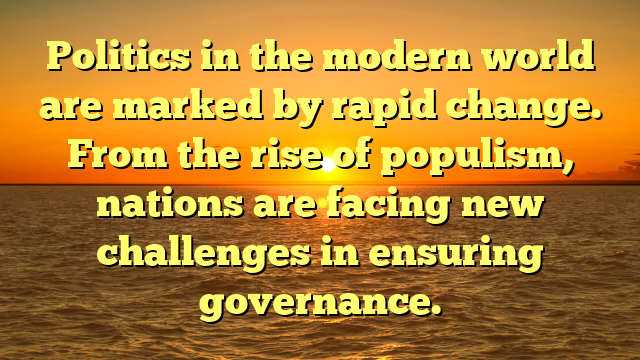One of the most striking trends in recent years is the deepening divide between political parties. In sewu88 slot like the United States, legislative progress has been paralyzed by entrenched positions, making it difficult to focus on public interest.
Digital communication plays a crucial role in this shift. Recommendation engines tend to intensify preconceived notions, leading to radicalization. As a result, voters are often misled, and politicians are more likely to use divisive language rather than policy details.
Meanwhile, the international arena is also witnessing shifting alliances. With the decline of traditional powers like the US, emerging nations such as India are asserting themselves. This has led to a more complex diplomatic environment, where international cooperation are more critical than ever.
On the domestic front, inflation continue to dominate the political agenda. Voters are demanding concrete action on topics such as affordable housing. Governments that ignore these problems often face declining approval ratings.
Another key issue is climate change. Politicians are increasingly urged to reduce emissions, yet many are hesitant due to lobbyist pressure. This lack of urgency could have severe consequences not only for global health, but also for political stability.
Despite the challenges, there are positive signs. Grassroots movements is on the rise, and independent candidates are gaining traction. These developments suggest that public participation is still resilient, even in times of crisis.
Ultimately, the future of politics will depend on how institutions choose to build consensus. Whether through reform, there is a clear need to restore trust. The choices made today will determine the direction of societies for decades to come.



